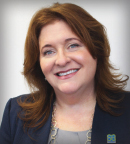My family first suspected we might have inherited the BRCA1/2 gene mutation after my father was diagnosed with his third cancer, colorectal cancer, following multiple bouts of squamous cell carcinoma and basal cell carcinoma beginning in his 30s and later prostate cancer. But the high risk of cancer was evident in our family history long before my father’s cancers appeared. My father’s brother died of melanoma, and his grandparents as well as other family members of that generation all died of various types of cancer, so it did not come as a shock when my father tested positive for the BRCA2 gene mutation.
My father’s genetic counselor recommended his children be tested for the gene mutation, and one brother and I immediately agreed to be screened. We were found to be carriers of the gene mutation. My two other brothers have declined to be screened.
Coping With the Effects of Preventive Surgeries
I was told by my oncology team that I had a nearly 60% chance of developing several female cancers if I did not have a hysterectomy and oophorectomy. I was also told that I had an 86% chance of developing breast cancer—and an even greater risk, 94%, of dying of the disease—if I did not have a prophylactic bilateral mastectomy. I knew I had no choice.

At the time, I didn’t understand the ramifications of undergoing prophylactic surgery to avoid cancer should be equally weighed against the potential loss of my quality of life.— Kathleen M. Ruddy
Tweet this quote
In 2018, at the age of 52, I underwent a complete hysterectomy and oophorectomy. Even though I knew my childbearing years were behind me before I had the surgeries, the finality of that decision was emotionally devastating. Two years later, I had a bilateral mastectomy with deep inferior epigastric perforator (DIEP) flap reconstruction surgery, which uses skin, fatty tissue, and blood vessels from the lower abdomen to rebuild a breast. That surgery turned out to be both physically and emotionally devastating.
I had opted for the DIEP flap technique rather than breast implants because I thought it was wise to avoid the risks associated with implants and the eventual need to replace them. I hoped the procedure would give me a more natural look, the bonus of having a tummy tuck, and a quicker recovery. But complications from the surgery began even before I left the operating table.
There was an initial problem with the blood supply to the transplanted tissue, which quickly led to tissue flap necrosis. Despite two additional surgeries to fix the complication, the breast tissue is still necrotic, and now I have two hernias from the abdominal surgery. I have spent a year in physical therapy to deal with the consequences of the scar tissue, but I’m still in pain all day, every day.
Reducing My Risk for Cancer
In addition to having a body completely altered by surgeries to prevent cancer, my quality of life has been severely diminished. Because I can’t carry anything over 10 pounds, simple tasks like grocery shopping and lifting a carry-on bag on an airplane are difficult or impossible to accomplish. I live alone and worry that my independence is now also on the line.
Although I had asked about the risks of undergoing these preventive surgeries, my medical team and I were more focused on the risks of a cancer diagnosis vs the risks related to the various ways I could prevent the disease. I’ve been told my risk of developing cancer is now less than a healthy peer without the BRCA gene mutation, but it is not zero. And I’m still at a higher risk of developing colorectal cancer and melanoma, so I’m extra vigilant about getting regular colonoscopy screenings and full-body checks and, of course, maintaining a healthy diet.
Considering the Entire Patient Experience
As the head of the St. Baldrick’s Foundation, a volunteer- and donor-powered charity with the mission of funding research for childhood cancers, I realize how fortunate I am to have been able to get ahead of developing cancer, whereas the children we serve have not had that opportunity. Still, I hope the medical community will consider the physical, emotional, and spiritual toll of preventive surgeries and treat each person as a whole patient instead of separate body parts.
I was warned about the risks of developing cancer, but now I realize that the way I chose to limit those risks was a poor one. At the time, I didn’t understand the ramifications of undergoing prophylactic surgery to avoid cancer should be equally weighed against the potential loss of my quality of life. Physicians need to do a better job of explaining what might be lost in the aftermath of trying to save patients from getting cancer, so frightened patients are better equipped to make fully informed decisions about their health care.
Preventing cancer shouldn’t mean sacrificing your quality of life, and not everything that can be done should be done.
Editor’s Note: Columns in the Patient’s Corner are based solely on information The ASCO Post received from patients and should be considered anecdotal.
Ms. Ruddy, who lives in Altadena, California, is Chief Executive Officer of St. Baldrick’s Foundation.

